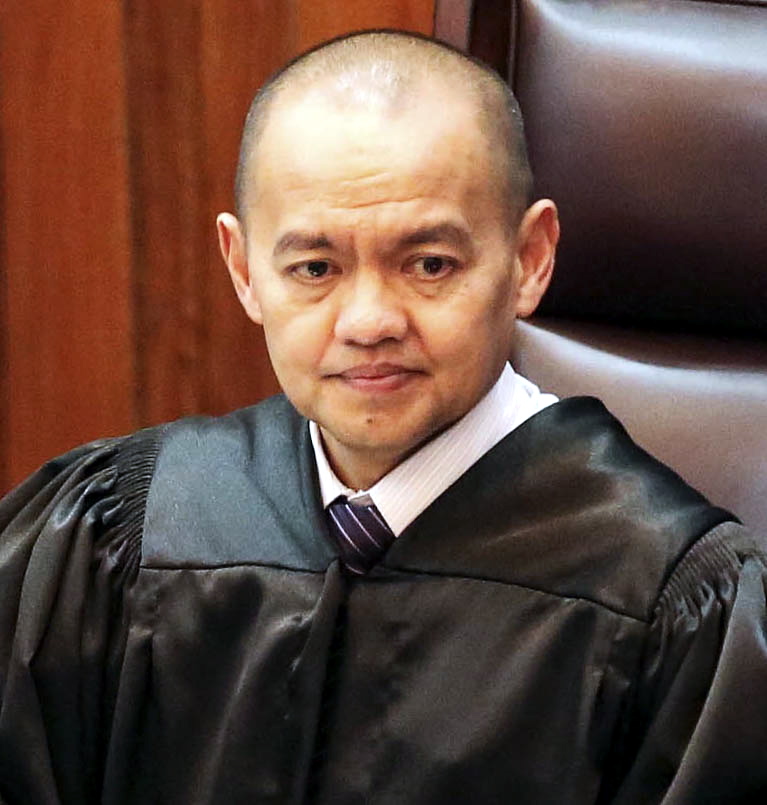Law graduates, pandemic-weary as they are, won’t have to unnecessarily pressure themselves to land in the top 10 passers of this year’s bar exams.
The Supreme Court on Friday announced that it would do away with the traditional ranking of bar topnotchers as it introduced several reforms in the annual examinations for would-be lawyers to deal with challenges posed by the COVID-19 pandemic.
The spotlight would instead be focused on the performance of the law schools, which would be ranked according to the percentage of their students who passed the bar, said Associate Justice Marvic Leonen, who chairs the 2020-2021 bar exams committee.
“It is hoped that by shifting the focus away from how select individuals excel and onto a school’s collective performance, this will encourage deep-seated and wide-ranging improvements in legal education,” Leonen said in a bar bulletin.
“Law schools would inspire and aspire for excellence that would uplift their entire studentry, rather than select bar bets only,” he noted.
Leonen said the changes in the proficiency test was intended to “enable a more equitable approach to appraising and reporting on bar examination performance” during the pandemic.
Pro hac vice
These changes, however, would be implemented pro hac vice, or for this case only, he said.
“It is true that we should own responsibility for what we achieve in our lifetimes. But it is likewise true that we do not all come from the same starting points,” the magistrate said.
“Some are more privileged than the rest. Others have to face more challenges … Understanding this is basic to understanding inequality, and more so, to finding the normative means to grant just rewards,” he said.
The “unique circumstances” of this year’s bar examinations provide the opportunity to introduce reforms “with compassion and understanding, but without sacrificing the core nature” of the process, Leonen said.
These recognized the many difficulties that law graduates had to face, including those who were supposed to take the bar examinations last year, he said.
“The court is aware of these challenges, which permeate all aspects of an examinee’s preparation,” said the former dean of the University of the Philippines College of Law.
The high court had decided to cancel the bar examinations in 2020 due to the raging contagion.
In 2019, a total of 2,103 out of 7,685 law graduates passed the bar examinations for a passing rate of 27.36 percent.
Localized, online exams
The magistrates had allowed the holding this year of the first-ever localized and online examination for new lawyers, which would be held during the four Sundays of November in key cities and regional centers nationwide.
An examinee should get at least 75 percent in weighted grade to pass the bar exams.
Instead of the top 10, the Supreme Court would release the names of examinees who got a weighted grade of at least 85 percent in recognition of their “exemplary performance” and they would be listed alphabetically.
“Apart from this, no fanfare shall be devoted in releasing information on examinees who rendered exemplary performance,” Leonen said.
Besides, Leonen said, restricting the accolades to a “circle of 10 risks being beholden to statistical minutiae.”
No subquestion
The court decided to limit the examinations for each subject to up to 18 “straightforward questions” only, with no subquestion.
In accordance with the Rules of Court, the test will cover eight subjects—remedial law (20 percent), political and international law (15 percent), civil law (15 percent), commercial law (15 percent), labor and social legislation (15 percent), criminal law (10 percent), taxation (10 percent) and legal ethics and practical exercises (5 percent).
“The bar examinations measure individual knowledge. It is no race or competition,” Leonen emphasized.
“Neither will it predict who among the examinees will become the best qualified within their batch, the better lawyer, the more relevant practitioner or the more compassionate individual,” he said.
